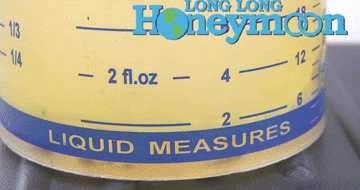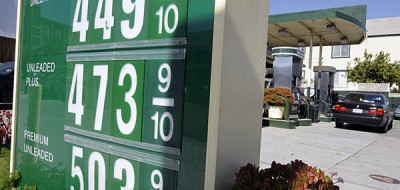By Bob Difley
 “OPEC just announced it’s cutting production by 2.2 million barrels. Remember – this is on top of the 2 million barrels in cuts they’ve already made since this summer! These guys are serious about getting the price of oil back up right where they like it: $75 a barrel, $100 a barrel, $150 a barrel” Boone Pickens said this week. “Every time the price of oil drops, America falls asleep. The Saudis don’t. The Iranians don’t. The Venezuelans don’t. But we do.”
“OPEC just announced it’s cutting production by 2.2 million barrels. Remember – this is on top of the 2 million barrels in cuts they’ve already made since this summer! These guys are serious about getting the price of oil back up right where they like it: $75 a barrel, $100 a barrel, $150 a barrel” Boone Pickens said this week. “Every time the price of oil drops, America falls asleep. The Saudis don’t. The Iranians don’t. The Venezuelans don’t. But we do.”
This reflected what President-elect Obama said on 60 Minutes a few weeks ago: “Oil prices go up, gas prices at the pump go up, everybody goes into a flurry of activity. And then the prices go back down and suddenly we act like it’s not important, and we start, you know, filling up our SUVs again. And, as a consequence, we never make any progress. It’s part of the addiction, all right. That has to be broken. Now is the time to break it.”
Then on Wednesday the Department of Energy in a new report stated that Americans will confront the inevitable rebounding of oil prices by using more biofuels, like ethanol and biodiesel, and buying more fuel-efficient cars, like hybrids, plug-in hybrids, and electric vehicles. The department’s Energy Information Administration (EIA), because of this trend, predicts that there will be virtually no growth in the the petroleum industry through 2030.
 That is probably not good news for the petroleum industry, but is good news is, as the EIA predicts, it “breaks the trend” of almost guaranteed annual increases in petroleum demand that date bace to the 1980s. This reversal has already started, with petroleum use declining this year by about 5% compared to 2007. And you know what that means–a sharp decline in oil imports, the foreign oil that we need to stop buying from unfriendly nations that use the proceeds to fund terrorist groups.
That is probably not good news for the petroleum industry, but is good news is, as the EIA predicts, it “breaks the trend” of almost guaranteed annual increases in petroleum demand that date bace to the 1980s. This reversal has already started, with petroleum use declining this year by about 5% compared to 2007. And you know what that means–a sharp decline in oil imports, the foreign oil that we need to stop buying from unfriendly nations that use the proceeds to fund terrorist groups.
Can we keep oil demand low? Can we conserve, drive less, and drive more efficiently? Will we buy smaller RVs, and more fuel-efficient toads? Will we support the expansion of solar, wind, and other forms of clean renewable energy so we can simultaneously reduce our use of the other fossil fuels, like natural gas and coal to fuel our power generating stations that in turn provide the charging power for our plug-in electric vehicles?
Or, as Boone Pickens says, with the price of oil currently so low, will we “fall asleep” and revert back to our wasteful ways? Or will we buckle down, get serious, support new sources of alternative energy, and not let OPEC dictate what price we will pay for energy?
What Does Oil Below $40 a Barrel Mean to You?
December 20, 2008




George Miller
Bob, Do you dispute that global warming is 95% caused by water vapor?? George Miller
Pingback: What Does Oil Below $40 a Barrel Mean to You? | rvnr.com
Centex
Brokers… Didn’t we just bail them out with Wall St. for 1T?
Long haul vehicles will still require fossil fuels. I think T-Boone is right, electric for in-town vehicles, natural gas (from America) for long-haul vehicles. Longer term we can look at hydrogen. But take a look at current plans for hydrogen. It takes a lot of energy to get hydrogen from H2O. Current plans are from oil, with CO2 sequestration.
John
Like other, I believe that the run up of oil prices was the work of Commodity brokers!! Our government MUST be forced to strictly control these brokers! As for OPEC, one or two a-bombs would silence the whole bunch of them!
John Shelton
One thing that we must keep in mind when discussing crude oil supply is that we (U.S.A.) have, for all practical purposes, drilled all the cheap oil that we once had. All the remaining domestic oil reserves cost more to “harvest” than the cost to buy oil from foreign sources. The days of drilling a hole a few hundred feet deep and oil gushing forth are long gone. Increasing our domestic oil supply could slightly reduce our dependence on foreign oil supply and we could be somewhat less vulnerable to an embargo or shipping interruption, but it would have little desirable effect on pump prices for motor fuel. If there is no cost advantage, why should we burn up our own reserves when we can burn up somebody else’s? What we must do, long term, is reduce demand.
Catchesthewind
How about we get with our European neighbors and tell the saudis et al that when oil goes up above $4o.oo a barrell the wheat we sell them will sell at the barrel price. They have to import their food so that will get their attention. But seriously folks now is the time to find ways to get away from oil dependancy.
Larry
Opec has said $75 to $100 barrel if fair to them, but when it was close to $200 a barrel they thought that was fair also but we did not, so $30 a barrel is fair to us so they have not say as to what is FAIR.
Fred
Don’t hold your breath for a quick reprieve with pump prices, but it was announced yesterday (Dec 20th) that Virginia has already encouraged and indeed made some contracts with a US oil company to start exploring off their coast in the Atlantic.
It encompasses hundreds of square miles offshore shaped like a pie wedge spreading out into the continental shelf. The oil company said even if oil was found, the best guess at volume would be only a few hundred million barrels.
But, adding this and hundreds of other potential off-shore sites, along with continuing to conserve and all other alternative fuels, to the future of our energy needs, just might show the foreign oil magnates that we Americans have had enough. We can isolate them to their own desert sandbox and for all I care let them drink the damn stuff.
How about it fellow countrymen? Have you had enough?
Fred
John Shelton
It kinda burns my butt that when the fuel prices were outta sight, there were rumblings of additional taxes to fund research and production costs into more efficient vehicles. Where are all these people now? If we survived $4/gallon fuel, why can we not add a bit to $1.50/gallon to fund this same research then lift the additional cost when the price rises back to a strainful level? (is “strainful” a good word?)
We are getting a temporary break; if we are smart, we will seize the opportunity. Are we smart?
Larry Guthrie
While some are patting themselves on the back thinking that a drop in the consumption of gasoline is responsible for the drop in the price of oil, there is simply not a large enough drop in consumption to account for the drop in the price of oil.
The first post is correct. The price of oil was being manipulated. Right now it isn’t and the price we are looking at is closer to what it should be according to supply and demand. It’ll go back up just as soon as the manipulators think they can make money.
At today’s use rate there is perhaps 200 years of oil reserves left. Why are we worried? Because the more we worry the more money some people make. Our lifestyle is not the problem.
Larry
Bob Difley
Do Patrick says, “Time to drill, drill and drill. we need to use our own oil and or natural gas. Continue to live the life we’ve earned and drive the vehicles we want.”
You forgot to add, “and the hell with the environment and global warming and feeding terrorist organizations with our oil money and a reliance on foreign OPEC nations for your energy.”
Bob Difley
John Sheldon says, “We gotta get concerned while gasoline prices are low and spend some money on research and production of more efficient forms of transportation.”
John – Thanks for the comments. I wonder whether the cutbacks by OPEC coupled with the low price of gas, will cause the whole thing to take off again. So far it hasn’t (OPEC already cut production once and it didn’t stop the drop in oil prices). I hope we can move to other fuels, especially hybrids and electric vehicles, and not fall back into the same habits.
Do Patrick
Time to drill, drill and drill. we need to use our own oil and or natural gas. Continue to live the life we’ve earned and drive the vehicles we want.
Do
John Shelton
I don’t know all the wrangling that goes on behind the scenes that affect the retail price of gasoline. I do know that the consumer with the pump hose in their gas tank ultimately holds the master key. When demand drops and, subsequently, supply increases, the price drops (a lower demand in itself has the effect of an increase in supply whether the refinery actually produces more product or not).
This principle not only applies to motor fuel, but to groceries, clothing, housing, etc. If a jar of coffee costs too much, just cut your coffee consumption by a few percentage points and the price will come back down. (Everyone who buys coffee must do this to be effective.)
The long term solution for fuel prices – and associated environmental considerations – is to simply use less fuel (This ultimately will include electrical fuel when that fuel becomes commonplace). We gotta get concerned while gasoline prices are low and spend some money on research and production of more efficient forms of transportation.
Bob Difley
Hi Nick – I think you’ve hit the nail on the head. But it’s not just with Wall Street. Speculators around the world buy and sell oil futures, the very process affecting the oil market well beyond simple supply and demand by delving into political manipulation, rumor spreading, the weather, an oil nation’s leader’s public comments, hurricane damage, etc. The proposal has been made to limit futures trading to those actually in the business protecting future supplies, which is what futures trading was meant for in the first place. That would take a lot of volatility out of the market. Nevertheless, as you said, we still have to scale down our demand for oil–especially foreign oil–and develop clean, alternate sources of energy. Thanks for your comments.
Nick Russell
I agree that we all need to look toward ways to reduce our oil consumption and develop alternative fuel sources. While I am no fan of OPEC, we have to remember that as soon as Wall Street took a dive and the speculators didn’t have any money to play with, oil prices began dropping like a rock. Maybe I have a simplistic viewpoint, but I believe that a large part of the problem regarding oil prices lies on Wall Street, along with OPEC.